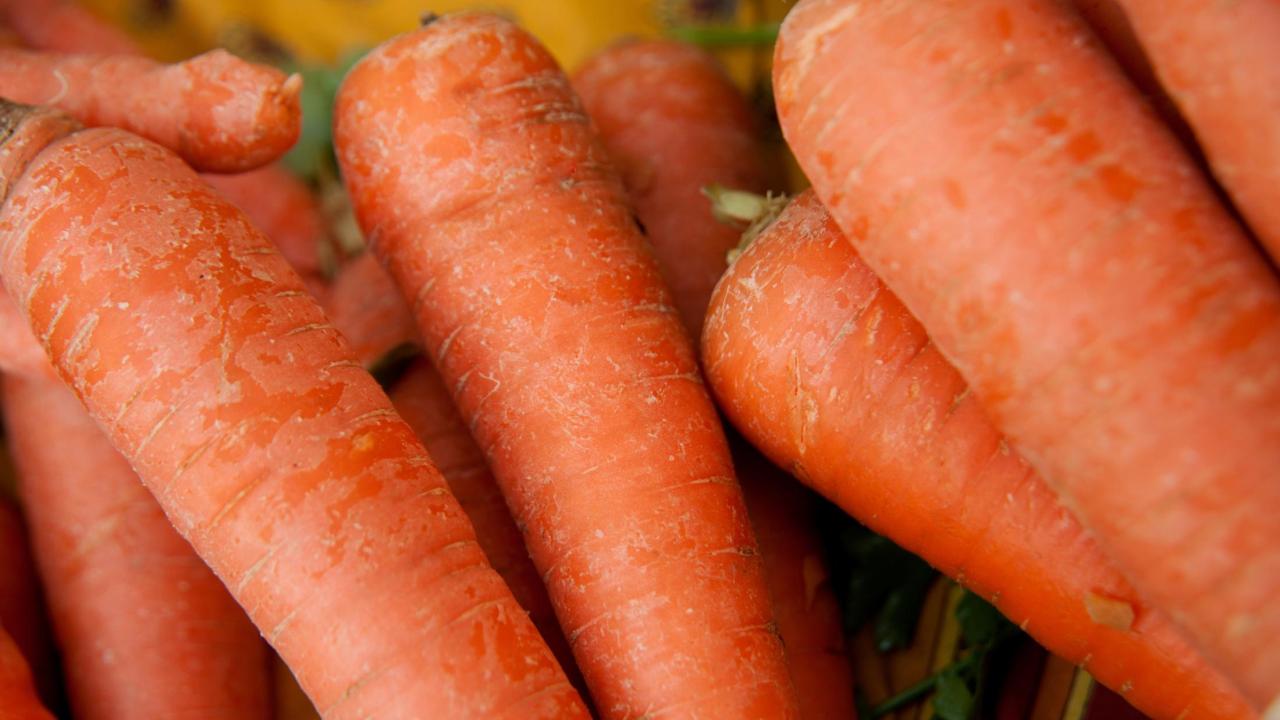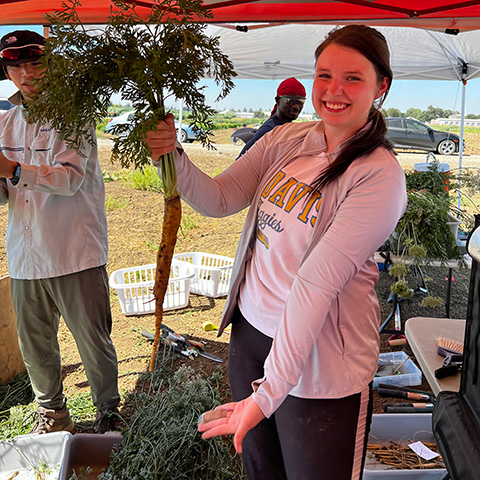
Van Deynze team part of $1M FFAR grant to help carrot growers
Team looks to wild carrots to improve stress, disease tolerance

Carrot growers face a variety of climate and biological threats, including water access and diseases such as Alternaria leaf blight, which can reduce yield by 40 to 60 percent. Some cultivated carrots are partially resistant to Alternaria, but still require frequent fungicide applications to fully protect crops.
To meet these challenges, the Foundation for Food & Agriculture Research has awarded a $500,000 grant to the University of California, Davis, to tap into the genetic diversity of wild carrots. They hope to breed Alternaria resistance and the ability to grow in water-deficient conditions into commercial varieties.
“Carrots provide a great source of essential nutrients like beta carotene, yet growers face significant challenges in protecting their crops,” said Kathy Munkvold, FFAR’s scientific program director. “Wild varieties of cultivated crops, like carrots, have rich genetic resources to overcome harsh conditions and diseases. This research seeks to harness these resources to ensure the stable supply of this important crop.”
Wild carrots have a range of genetic defenses to stress, and some have shown promising tolerance to water deficiency or resistance to Alternaria. A UC Davis research team led by Allen van Deynze is evaluating the tolerance of wild carrots under water-deficient conditions. Van Deynze, in the Department of Plant Sciences, is director of the UC Davis Seed Biotechnology Center and associate director of the UC Davis Plant Breeding Center.
In collaboration, Phil Simon, research leader at the U.S. Department of Agriculture Agriculture Research Service, is screening these wild carrots for resistance to Alternaria.
After determining which types succeed in these conditions, they will breed them with cultivated carrots to develop these traits in commercial carrot varieties. The investigators also are studying the genetic basis of tolerance to help strengthen these traits in future generations of carrots.

“Both Phil and I have a long-term collaboration with the carrot industry,” van Deynze said. “FFAR allows us to combine the synergies between academic research and industry to develop solutions for growers.”
The researchers will provide major seed companies and crop breeders with breeding germplasm, or genetic material, derived from wild carrots found to have the best potential to pass on the desired traits. They'll also provide breeding methods and tools.
The wild carrot germplasm comes from the USDA National Plant Germplasm System. These partners will, in turn, deliver improved carrots to growers. The project aims to quickly develop carrots that will both prevent yield and economic loss for growers while also securing the supply of carrots and carrot-based products for consumers.
FFAR’s Crops of the Future Collaborative partners Bayer, Bejo Zaden, Enza Zaden, Rijk Zwaan, Takii Seed and Vilmorin Mikado are providing matching funds, for a total investment of $1 million.
Related links
For more information, visit the Improving Stress Tolerance in Carrots page on FFAR’s website.
Read more about the Crops of the Future Collaborative, a public-private, multi-participant consortium convened by the Foundation for Food & Agriculture Research.
Media Resources
- Allen Van Deynze, Department of Plant Sciences, avandeynze@ucdavis.edu
- Emily C. Dooley, College of Agricultural and Environmental Sciences, ecdooley@ucdavis.edu
- Ryan Conley, Foundation for Food and Agriculture Research, rconley@foundationfar.org
